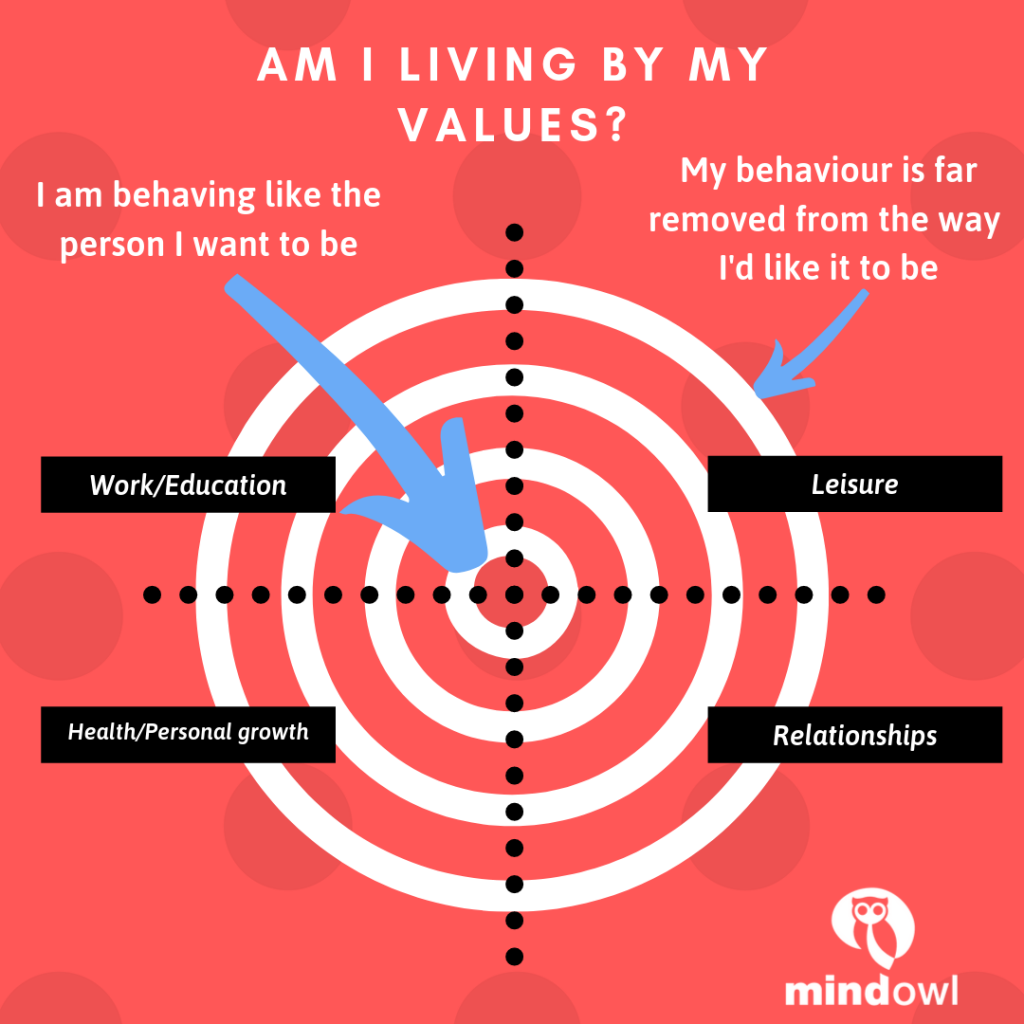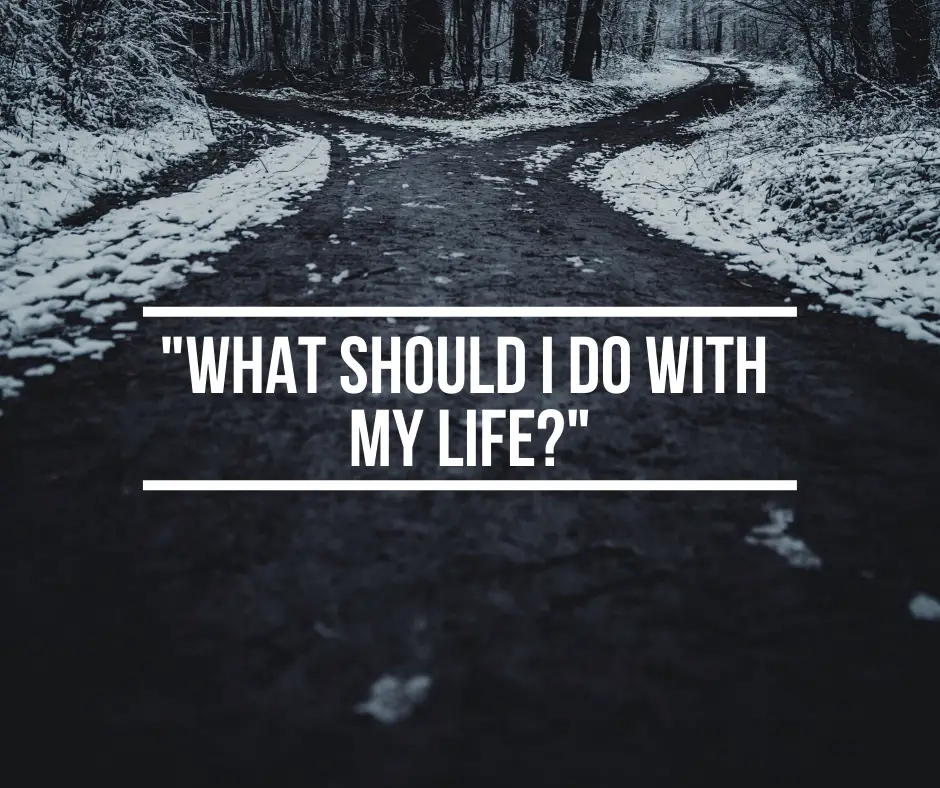“What Should I do with my life?” is a question which first tends to arise during adolescence before we’ve considered taking any career path. But It’s also one of those questions that never ceases to come to mind: it could be that you’re approaching your 30s, 40s or 50s and your age is making you re-evaluate your life. Perhaps, you drag yourself to work every day and you’re constantly asking yourself whether you’ve made the right life decisions. It could be that your romantic life is a bit of a mess and this makes you question whether there’s a different path that you could take. The truth is that the question “What should I do with my life” will stay with us for a long time. Is there an answer? Or we are always going to struggle with it?
The problem with big questions like this is that they require big answers and these are not something that we humans can deliver with a100% guarantee. Take the bigger questions like “What is the meaning of life?” or “What is reality? Philosophers, Theologians and Scientists have debated these for centuries, and it seems that we are not even close to having any definite answers. It’s noble of humanity to ask such fundamental questions, and reflection on one’s life is deeply important. However, when it comes to our everyday lives, adopting the same approach to finding a perfect answer to the question “What should I do with my life” could do us more harm than good. Instead, the solution to this question could be reached if we changed the way in which we approach it.
Let’s explore this a bit more:
Our problem-solving minds
Our minds have evolved to solve problems in the outside world. This problem-solving approach is highly effective and has given us a huge evolutionary advantage, enabling us to create concepts such as human rights and democracy, and to find cures for diseases. However, the same cannot be said when we apply this same approach to solving our inner experiences and problems.
Let’s think of an example. Suppose you go for a walk in the woods and after thirty minutes you found yourself trapped: you’re lost and have no idea how to get back home. Your problem-solving mind will “kick in” and start to analyse the environment; it will notice how you went wrong and how you got there. Then, it will look to the future and identify potential solutions. Once you got some potential answers, your mind you will enable you to take action to get out of the problem. The formula is simple: whenever we face a problem, we need to solve it, we need to get out.
We try to apply the same formula to our inner experiences and lives: if something is wrong, we try to fix it as fast as we possibly can. When we experience anxiety, we try to find ways to get rid of the problem, and when we experience unwanted feelings about ourselves, we try to quickly boost our self-esteem. When we are feeling unsure about our lives, we also try to rid ourselves of this feeling straight away.
The issue is that we expect to find an immediate solution and try hard to push our problems away too quickly. Deep down, we hope for definite answers that will guide us and sort out all our problems. For example, if you’re unhappy with your career in the finance industry, you could interpret that this feeling must mean that you should pursue photography professionally. Instead of assuming that this is the answer you’ve been looking for, you should take such thoughts and feelings as signals that you just need to make some adjustments to your life, rather than a radical change.
The problems with life goals
Another problem that comes with the question “What should I do with my life” is the problem of life goals. We’re commonly told that we need to have goals in life to be successful, and that life goals are linked to life satisfaction. Some of this could be indeed true, but there are some downsides to life goals which we usually don’t hear about:
• If someone has a goal of getting married before their 30s, this could bring problems. It creates an “if-then” rule or a “when-then” rule. These rules can place your life under the condition that it will be good only if and when you get the things you want. They don’t say much about how you can make the most of your life in the present. Your life can become impoverished if you miss out on experiencing important things that are happening right here in front of you.
• Goals also imply that we don’t yet have the object of our desire. If a goal is something in the future that we would like to achieve, it means that we don’t have it in the present moment. If someone has a goal of looking fit, that person could be extremely unhappy with his body shape. And what was thought to be a motivational goal might only bring more misery in the present if the person starts thinking about how far away he is from achieving it.
• Accomplishing goals can leave you empty. Imagine that everything went according to plan, you achieved all of your goals before you turned 35. You got married, got the job, got the house and the car… and now what? If you spent the last 15 years just pursuing those goals, once you’ve achieved them you could find yourself having no life direction. As Oscar Wilde said “There are only two tragedies in life: one is not getting what one wants, and the other is getting it.”
Knowing your values and using them as a compass.
If the common approaches to the question “What should I do with my life” don’t work, what can we do instead? The suggestion here is that we should shift from living a goal-based life and adopting a problem-solving mindset to living a values-based life. Our personal values are like a compass guiding us towards the kind of life we want to live and the person we want to be. We get to know our values by reflecting on which qualities we want to bring to our actions.
A quick exercise you can do right now is to imagine your 80th birthday party. Some of the most important people in your life will be there, and, as this is an important occasion, they will make speeches about what you are like as a person and highlight some of your qualities. What qualities would you like them to say you have? Perhaps that you’ve been a caring parent, a loyal and honest friend and someone who was brave and persistent in her professional life.
The difference to this approach is not limited to a set answer and fixed ways of living. For instance, you don’t need to wait for the answer “What you should do is to become a psychologist” to have a clear sense that some of your values are curiosity and contribution. Once you know what your values are they will guide your actions when you are studying to become a psychologist. Even if you never become one, you can find other ways to be curious and to contribute to others.
In addition, living in accordance with our values is never finished; it is a lifelong journey. Values can never be fully achieved. While we may or may not achieve the goals we have set for ourselves, our values provide the direction throughout the process. If you value kindness in your relationships, you’ll always try to act kindly towards others. There’ll be no point in life that you can say you’ve achieved the goal of being a kind person. There’s no “if-then” or “when-then”: you can be loving, kind, curious, brave, patient in the present moment. We derive our motivation and sense of purpose from our values.
Knowing your values is like having a compass that guides your behaviours. If you want to head North, you stop, look and ask “Is this taking me in the direction I want to go? The same thing can be done before every action you take. You ask yourself “is this going to help in the kind of life I want to create?” or “how’s this behaviour linked to my personal values?”.
How to put it in practice?
While our brains will push us to find answers to big questions, sometimes they can make us feel paralysed when we believe we need an answer before we can start living. The fact is that life is made up of how we live and behave on a day-to-day basis. A values-based life is a way to shift from the perspective of trying to find an answer to the big question “What should I do with my life?” and instead to ask ourselves to clarify what’s really important and to use our values as a guide for how we want to behave. From this new perspective, the question is more like “What’s important to me and what qualities can I bring to my life?”
Once we have a clear sense of what our values are, we can then start to ask questions like:
What do I want to do with …?
- My days
- My weekends
- The rest of this week
- The rest of this day
- This hour
And also, in each life domains, what do I want to do in terms of:
- My health/body
- My career/Job
- My family/Friends
- My leisure time
Always using the hours, days and weeks as references.
An example would be:
What can I do about my career today? This week? What values related to my professional life can I bring to my actions? For example, if Self-development and Creativity are your values, you could ask “What can I do today or this week to improve my professional skills?” or “Is there a way of approaching things more creatively this week?
If the conditions of your current job don’t allow you to express your values, then you could find out if a different job that would enable you to express your values. Always asking what you can do about it today? This week? This month. Always bringing it from an imagined future back to the present moment.
If the external conditions don’t allow for a career change, see if you can apply the same values in another life domain like working on your self-development and creativity on your leisure time or when you are with friends.
Once you know what’s deeply important and how it can inspire your actions in the world, you will slowly shift your attention from “What should I do with my life?” to “How can I take better care of my days by putting my values into practice?” Taking care of the days, this will give you a meaningful week, meaningful weeks give you a meaningful year, and, as you’ve probably guessed, a meaningful life is made out of meaningful years.
The illustration below can be useful to visualise which areas in life we are close or distant from our values:

Written by:
Filipe Bastos
Founder of:
www.mindowl.org
MindOwl Founder – My own struggles in life have led me to this path of understanding the human condition. I graduated with a bachelor’s degree in philosophy before completing a master’s degree in psychology at Regent’s University London. I then completed a postgraduate diploma in philosophical counselling before being trained in ACT (Acceptance and commitment therapy).
I’ve spent the last eight years studying the encounter of meditative practices with modern psychology.

